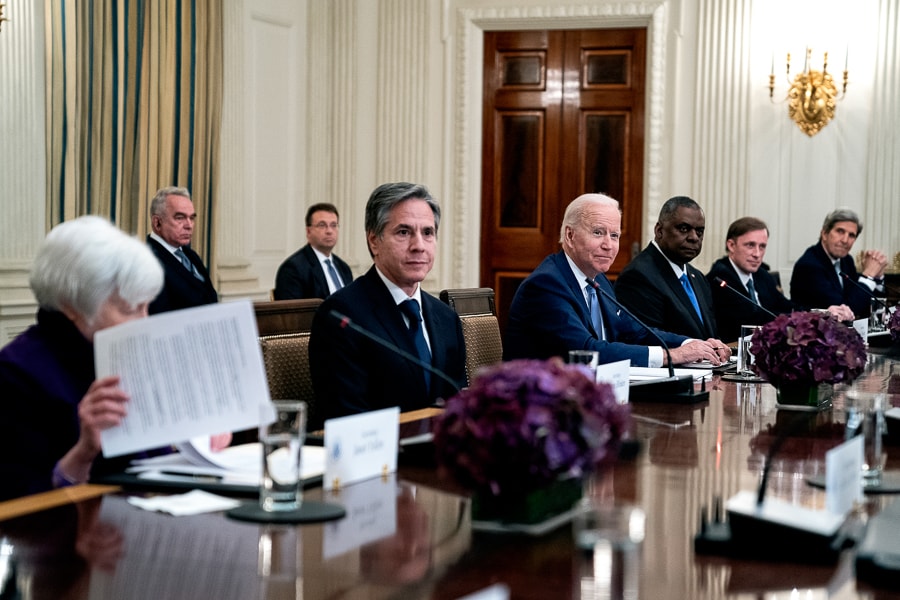
China's leader wants a 'lovable' country. That doesn't mean he's making nice
China is engaged in a "public opinion struggle," China's top leader, Xi Jinping, told senior Communist Party officials early last week
 From left, Treasury Secretary Janet Yellen and Secretary of State Antony Blinken join President Joe Biden, center right, and other administration officials in a meeting at the White House on Friday, May 21, 2021. Chinese President Xi Jinping’s remarks to top Communist Party leaders that they should improve their communications with the rest of the world suggest Beijing will focus on courting allies rather than easing its rhetoric against the U.S. and Europe. Image: Stefani Reynolds/The New York Times
From left, Treasury Secretary Janet Yellen and Secretary of State Antony Blinken join President Joe Biden, center right, and other administration officials in a meeting at the White House on Friday, May 21, 2021. Chinese President Xi Jinping’s remarks to top Communist Party leaders that they should improve their communications with the rest of the world suggest Beijing will focus on courting allies rather than easing its rhetoric against the U.S. and Europe. Image: Stefani Reynolds/The New York Times
China’s top diplomats have castigated their American counterparts for hypocrisy and condescension. They icily reminded Europeans of the Continent’s experience with genocide. They just accused New Zealand, a country that had been careful not to cause offense, of “gross interference” in China’s affairs.
So when China’s top leader, Xi Jinping, told senior Communist Party officials early last week that they should improve their communications with the rest of the world, some analysts and news reports suggested he was acknowledging that China’s increasingly pugnacious approach to diplomacy in recent months had not been warmly received.
“We must focus on setting the tone right, be open and confident but also modest and humble, and strive to create a credible, lovable and respectable image of China,” Xi said, according to an account by Xinhua, the state-run news service, of a collective study session at the party’s compound in Beijing.
Xi’s remarks followed a series of diplomatic setbacks that diplomats and analysts said had seized the leadership’s attention. China is engaged in a “public opinion struggle,” Xi told members of the party’s governing Politburo, who studiously took notes as he spoke.
His prescription, however, may intensify, not ease, the rising tensions that have increasingly spilled into diplomatic confrontations. His use (twice) of the word “struggle” carries echoes of the Mao era. One of his instructions was to do a better job of explaining “why Marxism works.”
©2019 New York Times News Service




